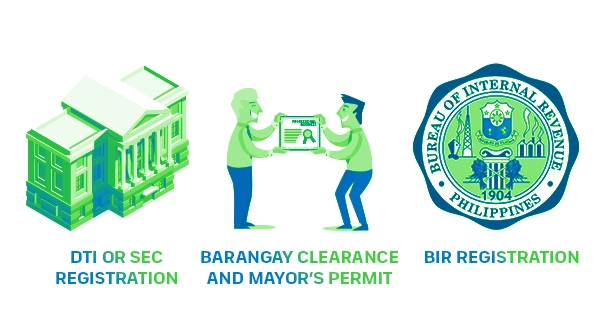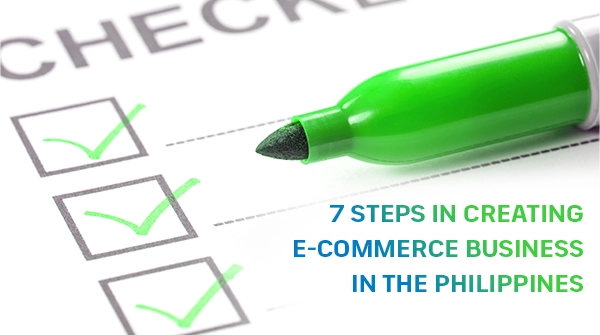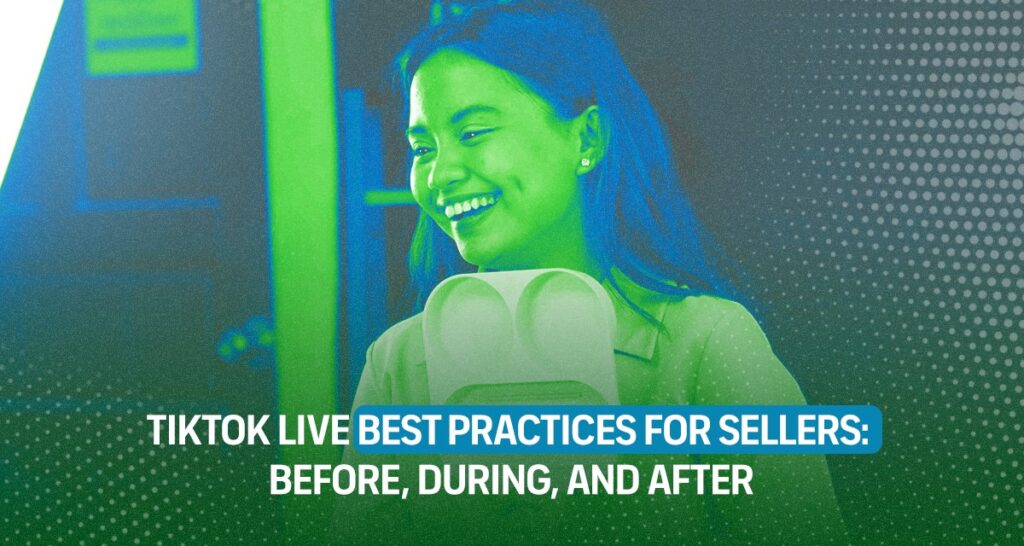So, you’re planning to start your own e-commerce business? Congratulations! You’ve chosen an exciting time to jump into the world of e-commerce.
The Philippine e-commerce sector is booming! According to the latest estimate of the International Trade Administration, the Philippines’ e-commerce is expected to climb to $24 billion through 2025.
While Filipinos are champions of online shopping, let’s just remind you that building a business isn’t a walk in the park. The entrepreneurial journey in the Philippines requires dedication and resilience.
But fear not, we created this e-commerce guide to cover everything you need to launch your own online business in the Philippines.
What are the Legal requirements for starting an e-commerce business in the Philippines?

Anyone who wants to start a business in the Philippines is required to fulfill specific legal requirements. Here’s a breakdown of the essential legal steps to take:
Barangay Clearance and Mayor’s Permit: Secure a Barangay Clearance from your local barangay and a Mayor’s Permit from your local government unit (LGU).
BIR Registration: Register your e-commerce business with the Bureau of Internal Revenue (BIR) to obtain a Tax Identification Number (TIN) and comply with tax filing obligations.
7 Steps in Creating E-commerce Business in the Philippines

Follow our step-by-step guide to create your own e-commerce business in the Philippines.
1. Find Your Niche
If you don’t own a product, then finding your niche is your first step in building your e-commerce business. It’s your responsibility to find products that actually sell. Remember, the product or category you choose will be the foundation of your entire business. So make sure to take the time to find products to sell online.
Our suggestion is to focus on a specific niche rather than a broad range of products.
By specializing in a single niche, you’ll gain a deeper understanding of your target audience’s needs, preferences, and buying habits. This allows you to easily tailor your strategies and product offerings for maximum impact.
But how can you find the right and profitable niche?
You can start by understanding yourself. Do you have a specific passion or interest? This can be a great starting point.
2. Research the Market
So, you already have a product in mind. Now comes the exciting stage of evaluating your business idea. At this step, you need to know if the products will actually sell in the Philippines market. Think of it as a crucial filtering process.
Here’s what you need to consider:
- Market Demand: Is there a genuine need for your product among Filipino consumers? Are there underserved customer segments or unmet needs your product could address?
- Competitive Landscape: Who are your competitors? What are their strength and weaknesses?
You can also do a SWOT analysis to cover these points. Doing this can help you refine your concept, identify your company’s unique value proposition, and solidify your brand positioning in the Philippine e-commerce landscape.
3. Craft Your Brand Identity
Branding matters even to e-commerce companies. A strong brand helps your customers find your products and trust your expertise. It allows you to stand out in your field.
Crafting a unique brand name and logo is the first step in branding. Make sure that your name and logo reflect your business personality and values. These two elements provide the first impression, so ace it!
Storytelling is also important in branding. This allows your brand to connect with your target audience on a profound emotional level. You can do this by sharing your brand’s journey, mission, and vision.
4. Build your Online Store
At this point, you now have products and brands. You may now start opening your online store and start selling.
In the Philippines, you have two options: Sell in the top e-commerce marketplaces or build your e-commerce store with your domain:
- Sell on E-commerce Marketplaces: List your product on platforms like Lazada, Shopee, or TikTok shop. These marketplaces offer a large audience, easy setup, and sometimes even delivery. But, you’ll share the spotlight with other sellers and brand building might be trickier.
- Sell On Your Own Online Store: Design your store, control the brand experience, and enjoy full profits. However, this might require the expertise of the developer. Furthermore, initial customer outreach can be tough.
5. Make your Checkout Process Simple and Convenient
A seamless checkout process is crucial in e-commerce. Baymard study revealed that 21% of potential customers abandon their cart online if they encounter a complex checkout procedure.
Allowing customers to have a guest checkout option is also a strategic move. The same research indicates that 28% of consumers gave up their cart because they didn’t want to create an account.
When building an e-commerce store, the security and variety of payment gateways are also critical. Try to offer multiple secure payment options to cater to customer preferences.
In the Philippines, cash remains to be the most preferred payment method for e-commerce transactions. However, the digital payment adoption rate is also growing in the country. So, if you’re creating an e-commerce business make sure to support both cash-on-delivery (COD) and digital payment.
6. Handle the Logistics
Let’s say you have your first order, you need to process this quickly and securely. In e-commerce, logistics is everything: ensuring your products are stored in a secure warehouse, maintaining accurate stock levels, and achieving prompt delivery.
While the logistics process might seem straightforward, it’s surprisingly intricate and can devour your time.
Initially, you might find it manageable to juggle these tasks solo. However, as your order volume balloons, consider partnering with a logistics expert or an e-commerce enabler in the Philippines. They can provide the necessary support to scale your operations smoothly and efficiently.
7. Market your E-commerce Business
Visibility is key in the bustling digital marketplace. Regardless of how good the products you offer are, if your audience doesn’t know about them, you can’t make a profit. That’s why you need a solid e-commerce marketing strategy that resonates with your audience.
The good thing is that the digital world we live in makes different promotional avenues accessible. Take social media, for example. You can create a business account on Facebook, Instagram, TikTok, and X without charge.
Using these platforms, you can create different forms of content to captivate, educate, and inspire your audience.
As your audience indulges in your content, they’re not just learning about your products; they’re forming a connection with your brand. This connection is the precursor to customer loyalty and advocacy.
In the end, the goal is to not just reach your audience but to engage them, inspire them, and make them feel a part of your business’s journey. With the right strategies, your business won’t just be known; it’ll be remembered.
Bonus Step: Partner With E-commerce Enabler Company
Launching your e-commerce dream can feel like climbing a mountain – exciting, but definitely challenging. From finding your niche to building your online store, mastering logistics, and marketing your brand, there’s a lot to navigate.
While it’s empowering to be your own boss, wouldn’t it be amazing to have a trusted partner by your side?
Here at Be Global E-commerce Corporation, we specialize in helping Filipino entrepreneurs like you establish a strong online presence and achieve e-commerce success. We offer a complete e-commerce solution, from store management and warehousing to fulfillment and marketing.
Book a consultation today. Let us handle the time-consuming tasks so you can focus on growing your business.





